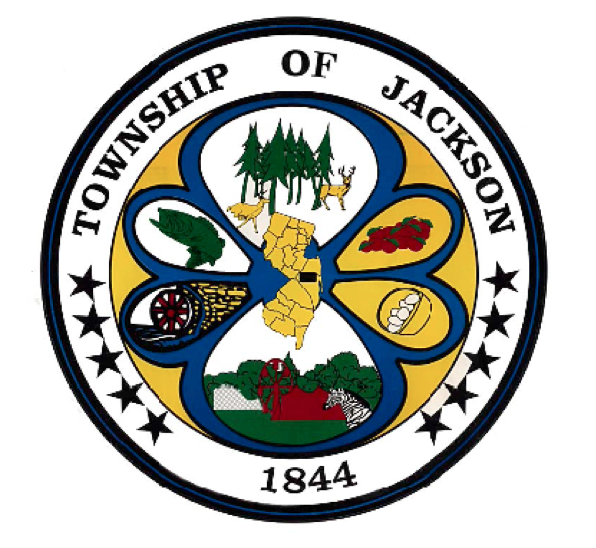JACKSON — An applicant’s attempt to secure a use variance that would have resulted in the construction of a house of worship failed to garner enough “yes” votes from members of the Jackson Zoning Board of Adjustment during a recent meeting and may now become the subject of litigation.
26 Whitesville Road, LLC, was seeking municipal approval to demolish two existing structures at 26 Whitesville Road, Jackson, and to construct a 3,000-square-foot house of worship as the primary use on the 2.44-acre site and a smaller building that would house a mikvah (ritual bath) as an accessory use.
According to the website myjewishlearning.com, “Jewish law requires that one immerse in a mikvah as part of the process of conversion to Judaism. It also requires women to immerse before getting married and when observing the laws of menstrual purity.”
Testimony on the application was heard by the board on March 16 and Aug. 17, and resumed on Dec. 21. The property is on Whitesville Road between East Veterans Highway and Calendula Court.
The applicant was following a two-step process known as a bifurcated application.
During the first step of the process, the applicant was seeking a use variance and relief from several municipal setback requirements.
In the bifurcated application process, the applicant is not required to present a fully engineered site plan. A fully engineered site plan would be presented to the zoning board if the applicant received the variance and returned at a later date to seek site plan approval.
During the Aug. 17 hearing, board members expressed concern about parking at the site, pedestrian access to the property, provisions for the collection of garbage and how emergency vehicles would reach the building at the rear of the property that would house the mikvah.
26 Whitesville Road, LLC, is represented by attorney Donna Jennings.
During comments on Dec. 21, Jennings said the applicant had since reduced the size of the sanctuary in the house of worship, would provide 67 parking spaces (64 parking spaces are required), added space for pick-ups and drop-offs at the house of worship, relocated the trash enclosure and would accommodate fire lane access with what she called a “grasscrete” fire lane.
Planner Ian Borden, who testified on Aug. 17, returned on Dec. 21. He said additional details had been added to the site plan as the board members requested and he said the Fire Prevention Bureau had accepted the revisions to provide emergency access to the mikvah at the rear of the site.
In making the case for a use variance to be granted, Borden said a house of worship is an inherently beneficial use that serves the public good and promotes public welfare. The planner described “significant landscaping” that would be provided on-site as a buffer to neighboring properties.
Borden said if the variances being requested were granted, the applicant would return at a later date to seek site plan approval.
Evan Hill, the zoning board’s engineer, said, “The applicant has taken the board’s direction and submitted additional information to support their variance request. The site can accommodate what they are proposing with some variance relief. We are minimizing the (scope of) the variances. The site plan can get better in the future. I believe the applicant has addressed the board’s concerns.”
Mordechai Hirsch, a member of the corporation, said more than 100 homes are being built in the vicinity of 26 Whitesville Road. Hirsch said he would expect many congregants of the new house of worship to reside in those new homes.
Hirsch said some congregants would walk to the building and at certain times congregants would drive to the building.
It was noted that parking would not be permitted on Whitesville Road.
In summation, Jennings said, “We heard the board and came up with a good plan.”
The applicant’s attorney asked the board members to grant the requested variances.
Board member James Hurley expressed concern with the manner in which parking was configured on the site plan. Some of the parking spaces on the applicant’s property front on Whitesville Road, but are not on the county road.
Hurley expressed concern that as drivers turned into the site from Whitesville Road, they might have to wait to enter the parking aisle at the front of the property. He said that delay to enter a parking aisle could cause other vehicles entering the site to back out onto Whitesville Road.
“We have to take every safety aspect into consideration,” he said.
Hurley suggested that some of the parking spaces for the house of worship be placed on an adjoining parcel that is owned by the same entity.
The zoning board’s attorney, Ryan Murphy, suggested that the board members consider the applicant’s request for the use variance in the bifurcated application process and not the details of the site plan, which included the parking spaces and parking aisles.
Board member Carl Book Jr. made a motion to grant the variances the applicant was requesting and the motion received a second.
Because the applicant was seeking a use variance, five “yes” votes were needed to pass the motion.
On a roll call vote, Chairman Scott Najarian, Vice Chairwoman Lynne Bradley, Steve Costanzo and Book voted “yes.”
Board members Jeanine Fritch, Raymond Lovacco and Hurley voted “no.”
Despite receiving a majority of “yes” votes, the motion failed and the variances were not granted, prompting Jennings to say, “I’ll see you in court” as the hearing concluded.

